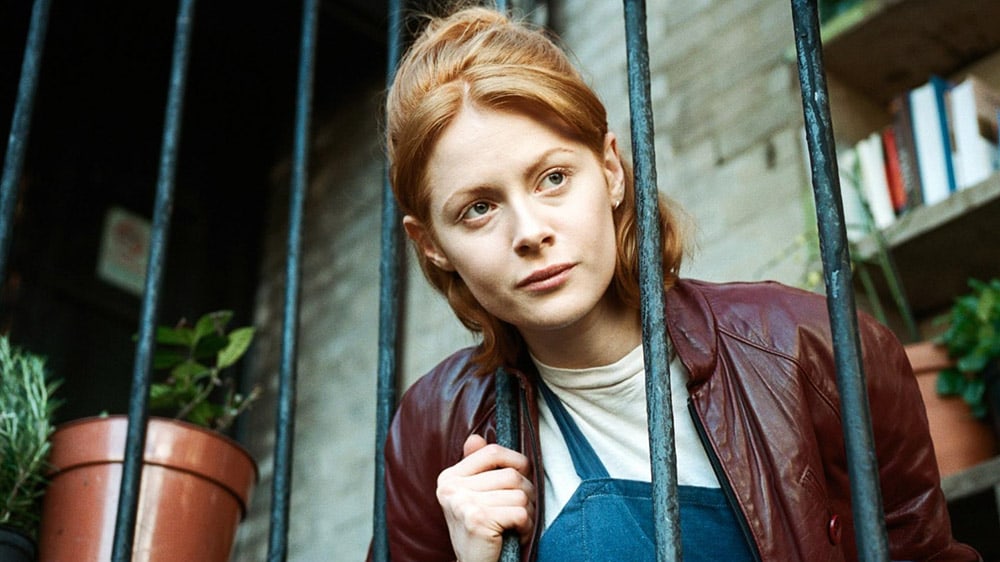Peter Mackie Burns’ debut Daphne is the anti-romantic comedy of 2017.
Filled to the brim with subtlety and a protagonist that’s not completely likable, any significant changes the film’s titular character experiences are not immediately discernible to audience members. Nor do they necessarily come about because of any romantic relationships with men.
The film is far more character-driven than plot – its narrative is fairly simple. The ever-cynical Daphne (Emily Beecham) is in her early 30’s, she’s a chef, she reads Slavoj Žižek, and she’s probably an alcoholic. Daphne’s life essentially consists of a revolving door of one night stands and hangovers. Such a life can certainly be all well and good, but it’s quite clear that she is hurting. She holds everybody at arms-length, even her cancer-stricken mother (Geraldine James). After Daphne witnesses the stabbing of a convenience store worker (Amra Mallassi), she is forced to deal with the cracks appearing in her seemingly unflappable veneer.
Emily Beecham’s performance perfectly highlights Daphne’s languid, disaffected state. And when the stabbing incident really starts to get to her, Beecham does just as well at demonstrating a person who is slowly beginning to lower her defenses, while developing a greater sense of self-awareness.
Daphne isn’t without its faults. At only 87 minutes long, time is rapidly ticking, so we never get a true sense of why Daphne is the way she is pre-incident. As previously mentioned, any transition she undertakes throughout the film is extremely understated, so to the less observant eye, it may appear that there was no transition. But these faults are greatly diminished due to Beecham’s acting. And probably because you can get through the film without once muttering to yourself ‘this is typical Hollywood rom-com if I ever saw one.’
Fun Fact:
This is director Peter Mackie Burns’ first feature-length film.





COMMENTS